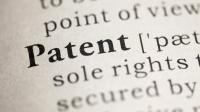Landmark decision from the Eastern High Court on patent entitlement
On Wednesday 28 October 2020, the Eastern High Court acquitted Danisco for Novozymes' claim for entitlement, or partial entitlement, to two of Danisco's pending patent applications, thereby upholding a first instance decision by the Danish Maritime and Commercial High Court also finding in favor of Danisco.

In 2017, Novozymes filed an action for entitlement to two of Danisco's patent application, claiming that Novozymes is the true inventor of the inventions, or at least a part of the inventions, in Danisco's patent applications.
As sole basis for this claim, Novozymes' argued that the inventions claimed in Danisco's patent applications were allegedly made available to the public by Novozymes in their entirety, by way of published patent applications, and an abstract and a presentation at a public scientific symposium, respectively, before the priority date of Danisco's patent applications. According to Novozymes, these publications disclosed the inventive concept in Danisco's applications and evidenced that Novozymes was the first and true deviser of the inventions, and that Danisco therefore was likely to have copied the inventions from these publications.
Novozymes did not allege that there had been any knowledge transfer from Novozymes to Danisco or any appropriation by Danisco from Novozymes of any non-public technical information relevant to the inventions.
Danisco disputed any allegation of having copied the inventions from Novozymes and maintained that the inventions were the result of Danisco's independent development work. Also, Danisco disputed the notion that the inventions in Danisco's applications were disclosed in Novozymes' prior publications.
As a purely legal argument, Danisco also argued that is it not possible to obtain entitlement to a third-party patent application solely based on an assertion that the patent application-in-suit contains information which, at the priority date of the application, or at the time of submission of the relevant claims, had been made available to the public. This, Danisco argued, applies regardless of whether the information had been made available to the public by the claimant seeking entitlement, or by another.
The Eastern High Court reasoned that because Novozymes was only referring to prior art as basis for its entitlement claim, Novozymes' case was in reality tantamount to a premature validity review of a pending patent application, which Danish courts cannot undertake.
Notably, the Eastern High Court found:
"To recognize that a party, who has itself published a technical teaching in a patent application or at a scientific conference or the like, could obtain judgment for entitlement to someone else's patent application, on the grounds that the invention claimed in that application has been copied from the published technical teaching, would in reality mean that anyone who has published a technical teaching would be able to achieve an examination, which essentially corresponds to the examination of the validity of a patent, before that patent has been granted. Thus, the objective examination which the High Court would first have to perform to determine whether Danisco in its variant application has used the teaching disclosed in Novozymes’ patent application with international publication number [number], and to determine whether Danisco in its method application has used the teaching disclosed in [name] presentation and abstract, is no different from the examination that the courts would have to perform under Article 138(1)(a) of the European Patent Convention, in case Novozymes, after Danisco would have obtained patent grant, files an invalidity action and argues that Danisco’s patents do not comply with the novelty requirement in Article 54, because they are based on the teachings in Novozymes' prior publications.
[…]
The High Court finds that the considerations underlying the Supreme Court’s judgment in UfR 2014.3533 advocate against allowing a party to obtain what essentially is an advance examination of the validity of a not yet granted patent, by bringing legal action for entitlement to the patent application and invoking a technical teaching which the party itself has published."
Thus, the Eastern High Court agreed with Danisco's legal argument and acquitted Danisco for all claims for entitlement.
Kromann Reumert acted for Danisco in both instances.
The decision has been published (in Danish) on the Eastern High Court's website.
Contact

